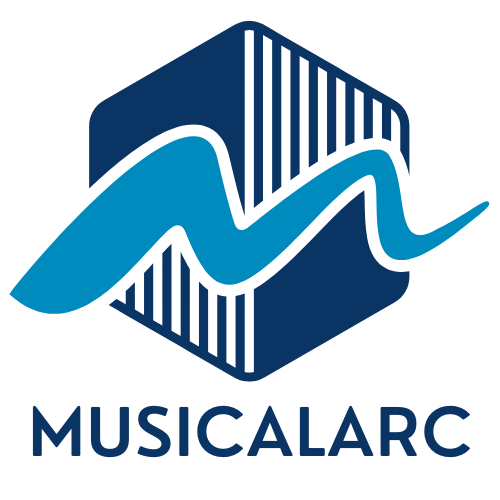Navigating the wild world of career development can feel like trying to find a Wi-Fi signal in a remote cabin—frustrating and often confusing. But fear not! Crafting a career development plan is like having a GPS for your professional journey. It helps individuals map out their skills, goals, and the steps needed to reach new heights.
Table of Contents
ToggleUnderstanding Career Development Plans
Career development plans guide professionals in mapping their growth. They provide a structured approach for individuals to assess their skills and outline their professional objectives.
Importance of Career Development Plans
Career development plans enhance career satisfaction. By identifying skills and setting clear goals, individuals gain direction. These plans foster motivation, allowing professionals to track progress and adjust strategies. Additionally, they align personal aspirations with organizational needs. When organizations support development plans, employee engagement often increases.
Components of Effective Plans
Effective career development plans contain several key components. Individuals must start with a self-assessment to identify their strengths and weaknesses. Next, establishing short-term and long-term goals is crucial. These goals should be specific, measurable, attainable, relevant, and time-bound. Furthermore, outlining necessary skills and training aids in achieving these objectives. Regular progress evaluations ensure ongoing alignment with career aspirations. Incorporating feedback mechanisms also enhances the plan’s effectiveness.
Examples of Career Development Plans
Career development plans can vary based on experience levels and professional goals. Here are examples tailored for different career stages.
Plan for Entry-Level Positions
Entry-level professionals start by assessing their current skills and identifying areas for improvement. Setting clear, achievable goals helps define their career path. For instance, they might aim to learn specific software programs relevant to their field. Participating in training workshops or seeking mentorship facilitates skill development. Networking with colleagues opens new opportunities and insights. Regularly reviewing progress ensures alignment with set objectives, fostering a proactive approach to career growth.
Plan for Mid-Level Positions
Mid-level employees often shift focus towards leadership and specialized skills. They assess their current role and identify potential promotions or lateral moves. Establishing both short-term and long-term goals is vital in this phase, such as completing certifications for advanced positions. Seeking leadership training enhances management abilities. Engaging in strategic projects broadens their experience and visibility within the organization. Continued feedback from supervisors aids in tracking advancement and recalibrating strategies.
Plan for Senior-Level Positions
Senior-level professionals concentrate on strategic vision and influence within an organization. They begin by evaluating their leadership impact and areas for enhancement. Setting ambitious yet realistic long-term goals, such as executive roles or board participation, becomes essential. Pursuing executive education programs strengthens their skill sets. Cultivating a strong professional network facilitates new business opportunities and partnerships. Continuous reflection on their career journey ensures relevance and alignment with changing industry trends.
Tools and Resources for Career Development
Accessing the right tools and resources enhances career development plans. Utilizing online platforms and participating in workshops are effective strategies.
Online Platforms
Numerous online platforms offer a wealth of resources for professional growth. Websites like LinkedIn Learning, Coursera, and Udemy provide courses covering various skills and industries. Users can choose specific topics aligned with their career goals. These platforms often feature certifications that bolster resumes for job seekers. Interactive elements, such as discussion forums, enable networking with industry professionals. Regularly exploring these resources helps individuals stay informed about industry trends and skills in demand.
Workshops and Seminars
Workshops and seminars present opportunities for hands-on learning and networking. Local community centers, professional organizations, and educational institutions frequently host events tailored to different career stages. Engaging in these interactive sessions fosters collaboration and allows for real-time feedback. Participants often gain insights from experienced professionals and subject matter experts. Many programs cover vital topics like leadership, negotiation, and communication skills. Actively attending these events enables individuals to broaden their knowledge base and enhance their professional networks.
Tips for Creating an Effective Career Development Plan
Creating an effective career development plan requires focus and strategic thinking. Key components include goal setting and regular evaluations.
Setting Achievable Goals
Setting achievable goals is fundamental for professional growth. Individuals should start by identifying specific skills they want to develop. Establishing measurable objectives helps track progress effectively. Goals should also be realistic and time-bound to maintain motivation. For instance, a junior marketer could aim to complete a digital marketing certification within six months. Long-term aspirations, like obtaining a managerial role, can also be outlined and broken down into smaller milestones. Prioritizing tasks based on relevance and impact maximizes productivity, leading to clearer paths toward success.
Regularly Reviewing and Adjusting the Plan
Regularly reviewing and adjusting the plan ensures alignment with evolving career aspirations. Conducting quarterly assessments fosters accountability and allows for necessary updates. Feedback from peers and mentors serves as a valuable resource during these reviews. Adjustments may involve refining goals, seeking additional training, or exploring new opportunities. For example, if an emerging trend arises in a specific industry, individuals might pivot their focus to acquire relevant skills. Staying adaptable remains crucial, as career paths evolve based on personal and professional growth. Consistent evaluation supports ongoing development and satisfaction in one’s career journey.
Career development plans are essential tools for navigating professional growth. By clearly defining skills and setting actionable goals, individuals can create a roadmap that fosters motivation and direction. Regular evaluations and feedback ensure that these plans remain aligned with evolving aspirations.
Organizations that support these initiatives not only boost employee engagement but also cultivate a culture of continuous improvement. Access to resources like online courses and networking opportunities further enriches the development process. With the right strategies in place, anyone can take charge of their career journey and achieve lasting satisfaction and success.




